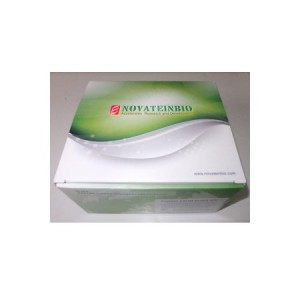Data sheet
| Validity | 6 months |
| Assay Range | 62.5--4000 pg/mL |
| Sensitivity | 10.0 pg/mL |
| Size | 96T |
| Storage | 2 - 8 ℃ |
| Background | Macrophage colony-stimulating factor (M-CSF), also known as colony stimulating factor 1 (CSF1), is a secreted cytokine encoded by CSF1 gene in human. Full length human M-CSF is a 522 amino acid (aa) type I transmembrane protein that forms a 140 kDa covalent homodimer. Human M-CSF is active in the mouse, but mouse M-CSF appears to be species-specific. M-CSF is produced by many different cell types, including fibroblasts, activated macrophages, endometrial secretory epithelium, bone marrow stromal cells, vitamin D-stimulated osteoblasts, and activated endothelial cells. M-CSF binds to its receptor M-CSF R (also called c-fms) to transduce its signals and mediate its endocytosis. Interaction of M-CSF dimers with M-CSF R induces receptor dimerization and phosphorylation at multiple sites. IL-34 can also interact with the M-CSF R, but activate distinct downstream pathways. M-CSF is essential to the survival, proliferation and differentiation of hematopoietic precursor cells, especially mononuclear phagocytes, such as macrophages and monocytes. It promotes the release of proinflammatory chemokines, and thereby plays an important role in innate immunity and in inflammatory processes. M-CSF plays an important role in the regulation of osteoclast proliferation and differentiation, the regulation of bone resorption, and in normal bone development. |
| Sample Volume | 100 µL final volume, dilution factor varies on samples |
| Product Citations | Available now |
| Country of origin | The U.S. |
More info
Citation:
Spinal cord injury modulates the lung inflammatory response in mechanically ventilated rats: a comparative animal study , Karine Truflandier, et al,
Physiological Reports, 2016, Vol 4, Iss 24, e13009


